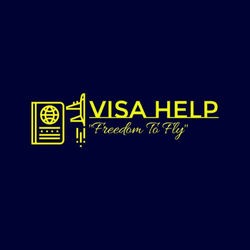For the modern digital nomad, the world is a workplace, and Sri Lanka is rapidly emerging as a top-tier destination, offering a compelling mix of affordable living, stunning natural beauty, and a growing infrastructure for remote work. The first and most critical question for any nomadic professional is always about legality and visas, and while Sri Lanka does not yet have a dedicated, named “Digital Nomad Visa,” it offers accessible alternatives that are perfectly suited for a long-term stay. The most common path is to enter on a standard Tourist ETA, which is obtainable online and grants an initial 30 days, and then apply for an extension at the Department of Immigration and Emigration in Colombo, which can grant you an additional 90 to 150 days; for those seeking even longer terms, the Residence Visa is a viable option, requiring proof of a consistent monthly income from abroad, typically around $1,500 to $2,000 per month, which serves as evidence that you will not be taking employment from a local citizen. Navigating this process is greatly simplified by using a local visa agency, which can handle the paperwork and queues for a reasonable fee, ensuring you remain compliant with local laws while you focus on your work.
Once the legalities are sorted, the practicalities of work take precedence, and the reliability of internet connectivity is a non-negotiable factor. The major urban centers, particularly Colombo, Galle, and Kandy, boast surprisingly robust fiber optic networks, with providers like SLT and Dialog offering packages that can deliver speeds up to 100 Mbps, which is more than sufficient for video conferencing and large file transfers. To mitigate any risk of downtime from occasional brief outages, which can occur, the savvy nomad will always have a local SIM card with a generous data package from Dialog or Airtel as a reliable mobile hotspot backup. This infrastructure supports a small but vibrant community of co-working spaces, with venues like the Commons in Colombo and KCC in Kandy offering not just high-speed internet and ergonomic workstations but also invaluable opportunities to network with other local and foreign entrepreneurs and freelancers.
Choosing your base of operations is a deeply personal decision that can define your entire experience, and Sri Lanka offers diverse cities to match different temperaments and work rhythms. Colombo is the undeniable hub for those who thrive on energy, networking, and convenience, offering the best co-working spaces, a vast array of international cuisine, and the comfort of modern amenities, though at a slightly higher cost of living. For a more balanced pace with a strong sense of community, the fortified coastal city of Galle provides a picturesque setting with a growing number of cafes catering to remote workers and a more tranquil, creative atmosphere. If you are driven by a desire for culture and a cooler climate, the ancient hill capital of Kandy, surrounded by mountains and tea plantations, offers a peaceful environment for deep focus, though with a slightly slower internet infrastructure outside the city center. Ultimately, Sri Lanka presents a powerful proposition for the digital nomad: the chance to structure a life where a productive workday can be seamlessly followed by a sunset surf session or a weekend exploring ancient ruins, all within a framework that is both logistically feasible and incredibly rewarding.




